Rats can make very good pets for families and even young children if they are supervised. Often they are described as “low maintenance pets” but of course there is still a lot to consider. In this guide, you will learn how to take care of rats and how to avoid the most common mistakes new owners make.
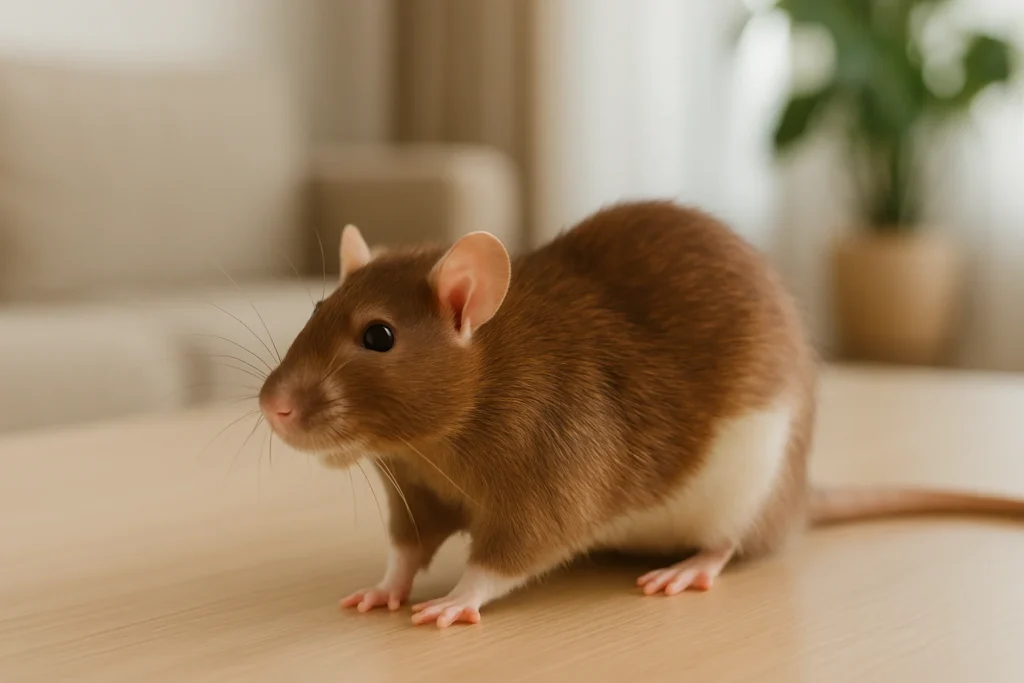
Things To Know Before Buying A Rat
The lifespan of rats is 2 years on average. This seems quite short but as you take over responsibility for a living being you should be aware of a few things:
- All rats are nocturnal, this is also for house pet rats. As most pet rats are very social and have a strong desire to spend time with their human, they will fit their schedule up to yours to a certain amount.
- The playtime you can offer your rat is not enough, even if you do it on a frequent basis. Most of the time your rat will be lonely in her cage. Because of that, you should hold rats in pairs or groups. Make sure all have the same gender if you do not want to be surprised with some baby rats. Female rats can get pregnant at the age of 5 weeks.
- Female rats are easier to take care of especially for beginners. That is mostly because males are more territory. Often they won’t accept a new roommate later in their lives.
- In contrast to the picture most of us have when thinking about rats, they are very clean pets that spend a lot of time grooming themselves.
- Rats are very friendly pets that love to cuddle. But even if your desire is strong, let them be on their own for the first few days. You can start to touch and handle 3 or 4 days after they arrived in their new home.
- As they are highly intelligent, you can teach your rats some tricks. Calling them by their name, jumping onto your hand by command and other things are fun for all of you.
- There are some typical health issues Rats are prone to. Cancer and respiratory problems are quite common and you should be prepared to deal with them.
- Think about your other pets. Do you have a cat or a dog? Make sure that there is a safe way for all species to get along with each other.
- There are many rats who do not have a home. If you want to do them a favor, visit your local shelter or petfinder before you buy one in a pet shop.
What Does A Good Habitat Look Like?
Cage
As your critters will spend most of their short lives in a cage, you should try to make the best choice. Get one with a solid floor, to prevent foot injuries and bumblefoot. Aquariums are not suiting because of ammonia build-up due to bad ventilation. Go as big as your home and budget are allowing it, hamster cages from the pet shop are definitely too small.
Large powder coated wire cages with a solid bottom pan, horizontal bars for climbing and multi-level platforms are often a good choice.
Make sure the place for the cage is not in direct sunlight and free from humidity before you set everything up. Rats love to have a quiet place to relax but also want to be near to your social activities. Placing them on a shelf instead of the floor will give them a good view. Most individuals love to look outside the cage and observe the things that are going on.
Bedding
Bedding for rats should be dust-free and not of cedar or pine as these woods can be toxic to the little critters. Your pets will use it as nesting material and you should make it at least 1 or 2 inches high so that they can hide and burrow. If you want to learn more about bedding for rats, we suggest our linked article.
Accessories
There are some accessories that your rats definitely need:
- A hiding place to rest and sleep in
- More than one-foot bowl to prevent rivalry when it comes to food and treats
- A water bottle with enough freshwater
- Something to chew on that keeps teeth clean and healthy

Toys
Rats are active and curious, no wonder that boredom can appear easily. Therefore toys provide joy and exercise. There are different toys that can be used to entertain rats:
- Hammocks and platforms
- Ladders, ropes and swings
- Different toys designed for birds
Make sure to rotate toys every now and then to add some more variety. Apart from that, quality is very important as rats tend to gnaw on everything.
How To Keep Rats Happy?
Cleaning Their Habitat
Rats are clean and expect the same from their environment. A dirty cage with old bedding can easily lead to health issues.
To make sure everything is like it should you just spot clean frequently. Change wet and smelly bedding, empty the litter box and remove poos when you find them. It is very easy to litter train rats which will save you much work.
Once a week you should change all the bedding. Along with that, you can deep clean the whole cage with all surfaces and accessories like the hiding house.
How To Handle And Play With Your Rats?
Toys are not enough, you have to spend some time with your rats and play with them if you want to have happy pets. This should be on a regular basis and at least one hour per day.
When you are new to each other it can be that your rats will bite or scratch you. This is especially when they are stressed. If this happens, just squeak like a rat and pull your hand back. It is very likely that they understand what happened
When handling your rats, there is one important rule: Never lift them up by their tail. Rats are very good pets for families. Young children should be supervised especially at the beginning of their friendship.
Exploring the rooms in your house or flat is fun for every rat. If you decide to let them do so, make sure everything is rat-proofed and make the room safe:
- Close windows and doors
- Remove toxic houseplants
- Remove electric cables that can be chewed on
Think about your furniture too. Apart from chewing rats might scent mark on your sofa and other things. Even you have to be prepared for this.
Which Kind Of Food Do Rats Need?
As omnivores rats need a mixed menu. There are good foods available that meet their needs. Like most rodents, rats tend to pick the ingredients they like most, so products, where all ingredients are processed to one part, should be preferred.
Apart from that good foods are balanced in nutritional values. The best rat foods are low in fat and have a moderate protein level. You should have an eye on ingredients like alfalfa that are not digestible in rats.
Fruits and vegetables can be a good occasional treat. Rats love sweet things but you should resist giving them anything with sugar like chocolate under all circumstances. Whole pasta or bread is ok on the other hand.
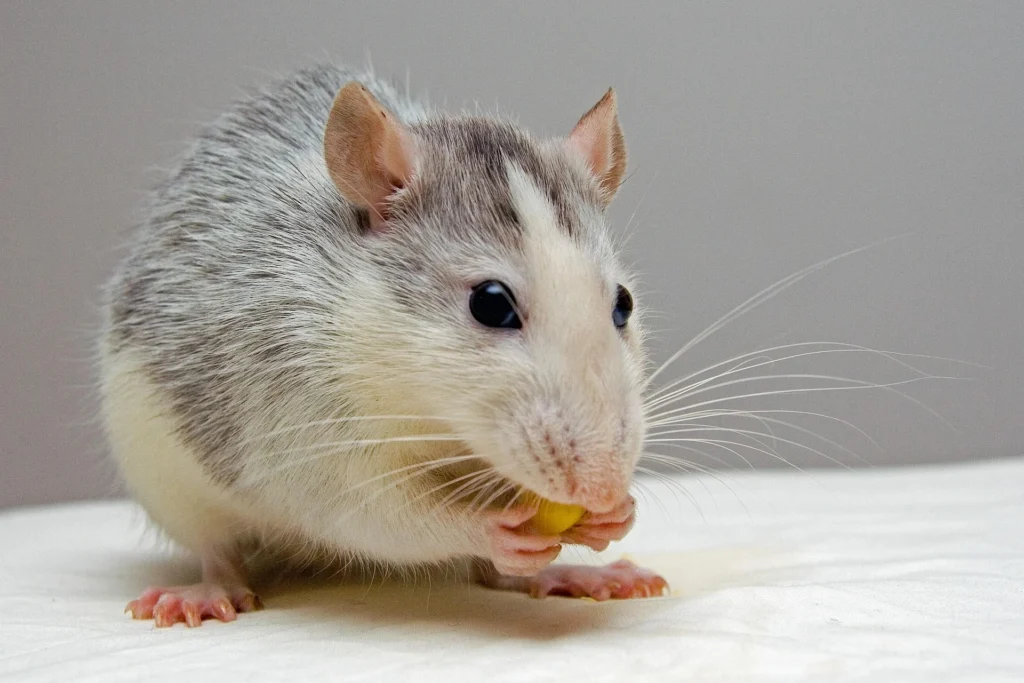
How To Keep Rats Healthy?
As already mentioned, there are some common health problems for rats. These are
- Tumors (especially in females)
- Respiratory issues
- Neurological problems
- Parasites like lice
To prevent your rat from issues that get more and more serious, you should watch for different signs regularly:
- Sneezing
- Weight loss
- Lethargy
- Abnormalities in poo
- Bare patches in the fur
If you watch some of these things or are unsure you should take your rat to the vet.
Pet Rat Care: Common Questions Answered
Are rats hard to care for?
Not really – pet rats need moderate care, with some daily attention and weekly cleaning. After you set up a good habitat, caring for rats is straightforward. You’ll need to clean their cage regularly, replace bedding, and refill food and water each day. They do need social time and exercise (about 30 minutes outside their cage daily), so plan for play sessions or handling. According to experts, rats are intelligent, social pets that reward owners with friendly behavior. However, reputable sources also note they have “complex needs” (proper diet, clean air, vet care) and shouldn’t be neglected. In summary, a cute fancy rat or domestic rat isn’t as low-maintenance as, say, a goldfish, but most owners find them quite manageable once the routine is established.
What do rats need to survive?
Rats are active, social creatures. To keep one (or better yet, a bonded pair) healthy and happy, provide at least:
- A spacious cage – The best rat cage is a tall, multi-level wire enclosure with a solid floor base. (Glass or hamster cages are too small.) For two rats, a common recommendation is at least 2×2×2 feet (60×60×60 cm). Bigger is even better. Include ramps or platforms since rats love to climb.
- Safe bedding and nest – Use paper-based or aspen bedding (avoid cedar/pine bedding, which contains harmful oils). Change bedding weekly and provide a snug nest box or hideaway (a small cardboard box, wooden hut, or hanging pouch) for sleep and burrowing.
- Nutritious food and water – Feed a high-quality pelleted ratfood diet (commercial block or pellet mix) as the staple. Pellets are formulated to be balanced, and rats graze throughout the day. Supplement with fresh foods (small amounts of fruits, veggies, cooked pasta, and occasional protein like cooked egg or lean meat). Always have fresh water available (a sipper bottle plus a shallow dish). A heavy ceramic food bowl helps prevent tipping.
- Social companionship – Rats are highly social. They need at least one same-sex friend to thrive. A lone rat can become bored and depressed. If you have only one, plan to add a companion soon (rescues often adopt rats in pairs.
- Exercise and enrichment – Rats enjoy playing and exploring. Give them daily playtime out of the cage in a safe, supervised area. Inside the cage, provide toys and chewable items (wood blocks, ropes, tunnels) to gnaw on and climb. Rotate toys regularly to keep them curious. Simple touches like paper towel rolls, digging boxes (with soil or clean sand), and chew sticks enrich their environment.
Together, these basic needs – housing, diet, company, and enrichment – cover the essentials for a healthy pet rat.
How long can rats live alone?
Rats are social animals, so it’s best not to keep one alone. A solitary rat (for example, if a cage-mate dies) can physically live the same 2–3 years lifespan, but it will likely suffer from loneliness. The RSPCA and pet experts agree it’s unfair to keep a rat by itself, as single rats often become depressed. In practice, if you find your pet rat is alone, you should introduce a new friend as soon as possible.
In terms of day-to-day care, rats should not be left without human attention or food/water for more than a day or two. Always ensure a buddy rat or a pet-sitter when you travel. In summary, rats should have at least one companion — a lonely rat can still survive, but it won’t thrive without a furry friend.
Do rats love their owners?
Yes! Pet rats can form strong bonds with their humans. They are smart and recognize their caregivers, often getting excited when you come around. The RSPCA notes that domestic rats “can form close bonds with their human carers”. Many rat owners report that their cute pet rat will climb onto their shoulder, cuddle in their lap, or groom their fingers. In fact, rats have been shown to literally “laugh” when tickled, and they remember which people have given them positive experiences. With gentle handling, most fancy rats enjoy exploring on you and can become very affectionate. A friendly pet rat will often seek out cuddles or ride on your shoulder, indicating trust and even love.
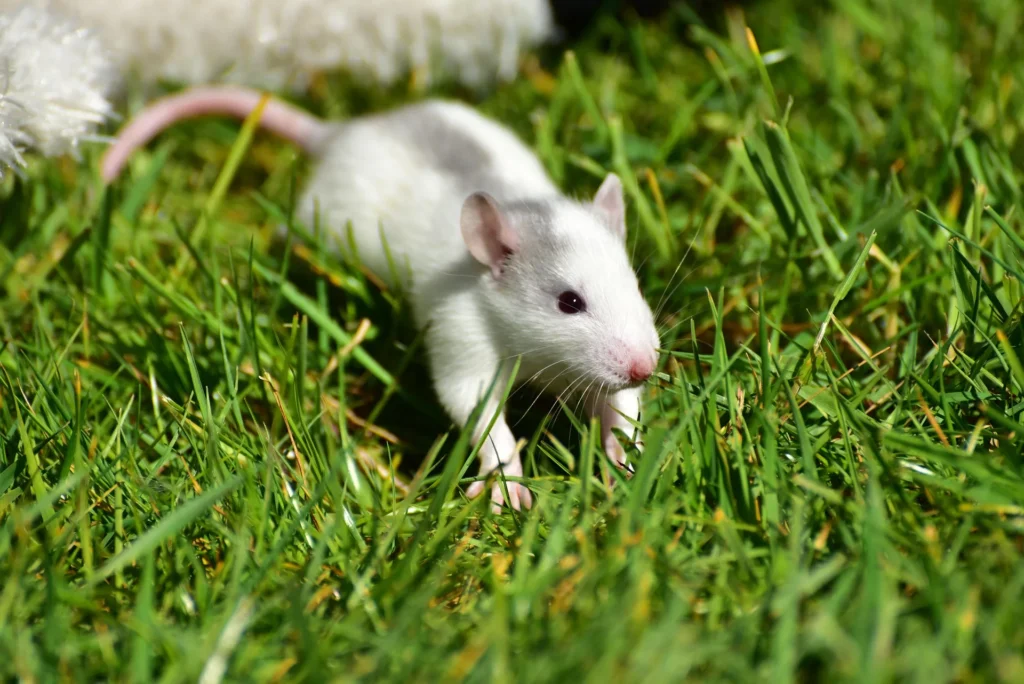
Do pet rats smell?
Generally, no – healthy pet rats themselves are very clean and usually don’t smell bad. Rats groom themselves constantly, much like cats. If the cage is kept clean, you should notice very little odor. PetMD advises that rats “have very little odor if their enclosure is properly cleaned”. The main source of smell is a dirty cage (old soiled bedding or uneaten food). To keep odors down, change soiled bedding frequently (spot-clean daily, full clean weekly) and avoid wood shavings with strong scents. Unneutered males can have a stronger musky scent, but even that can be managed with neutering. In practice, with good hygiene, your cute fancy rat will stay smelling neutral. Proper diet also helps – a balanced, low-fat diet reduces urine and skin odors. In short: the rats themselves stay clean; regular cage cleaning keeps your home odor-free.
Can you bathe rats?
Usually, you shouldn’t need to. Pet rats are very effective self-groomers. Bathing them in water can strip away natural oils and cause stress. PetMD explicitly says rats do not require any bathing unless they are sick. If a rat gets something sticky or dirty on its fur, it’s better to give a gentle wipe with a damp (unscented, mild) cloth. Never submerge a rat or force it to swim – this is highly stressful. If your rat enjoys it, you can offer a supervised shallow water bath or “wading pool” for play, but only if the rat willingly enters. As a rule of thumb: spot-clean and let them self-bathe. If a full bath is ever needed (e.g. parasite treatment), use a vet-approved tiny-animal shampoo and lukewarm water, and dry the rat quickly to prevent chills.
What smell do rats love?
Rats have an excellent sense of smell and are usually attracted to food-related aromas. They tend to go wild for the scent of tasty treats: think peanut butter, nuts, cheese, fruits (like bananas or berries), grains or cereals. These are the smells that will immediately get your pet rat’s attention. (In pest-control terms, these same scents attract wild rats, too.) Rats also enjoy each other’s scent and familiar human scents; they recognize the smell of people who handle them kindly. On the other hand, rats generally dislike very strong or irritating smells (they avoid pine/cedar oil, ammonia, or strong citrus oils)
. So give them gentle, food-based aromas rather than overpowering fragrances. In short: food smells (and your friendly scent) are pleasing to a rat’s nose.
Do pet rats bite?
Rats rarely bite if treated well. By nature, pet rats are timid and gentle. According to PetMD, “rats do not typically bite” – only young or frightened rats might nip when scared. If a rat is startled, it may give a quick bite, but this is uncommon with proper handling. To prevent bites, handle your rat pet animal calmly: use slow movements, support its body, and offer it treats. Positive association (treats and gentle stroking) makes rats eager for interaction. If a bite does occur, wash the wound promptly; rat mouths can carry bacteria, so treat it as you would any small animal bite. In most cases, a tame domestic rat will only nibble if it feels threatened. With trust and socialization, biting should not be an issue.
Summary: Domestic (fancy) rats make affectionate, intelligent pets when given the right environment and care. They need a best rat cage with space, companions, a healthy diet (good ratfood), and daily social time. With those basics met, your cute pet rat is more likely to love you than bite you – and definitely won’t smell bad if you keep its home clean.
Sources: Expert pet-care guides and animal welfare organizations provide detailed advice on rat care.
These include the Spruce Pets and PetMD (veterinary advice), and UK charities RSPCA and Blue Cross, all of which emphasize socialization, proper housing, diet, and cleanliness. Each resource stresses that with attentive care, rats are clean, friendly, and rewarding companions
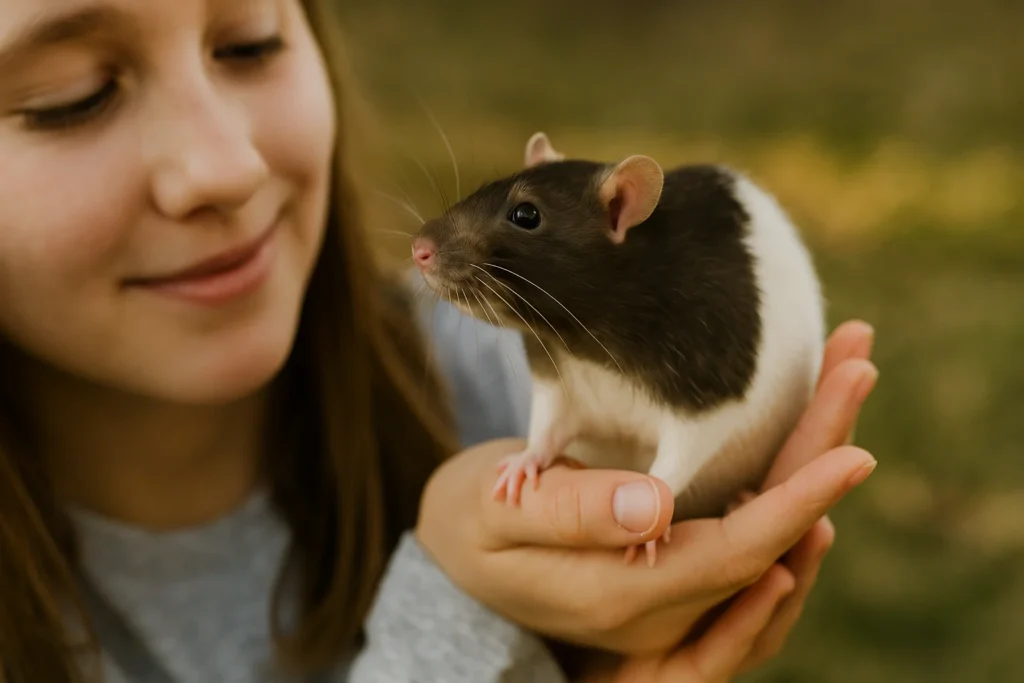


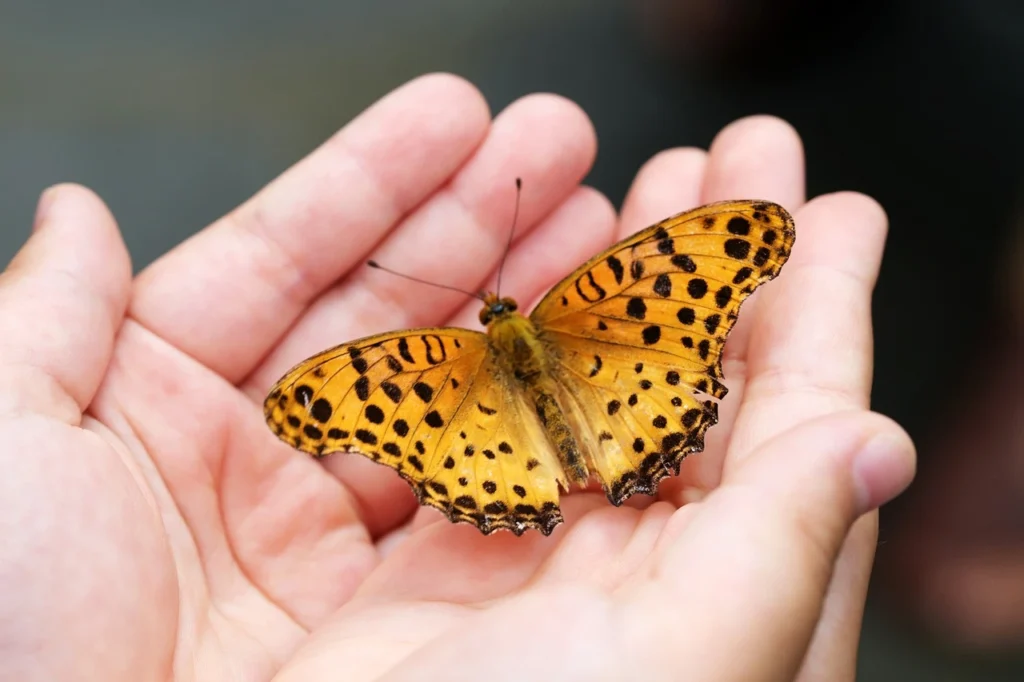

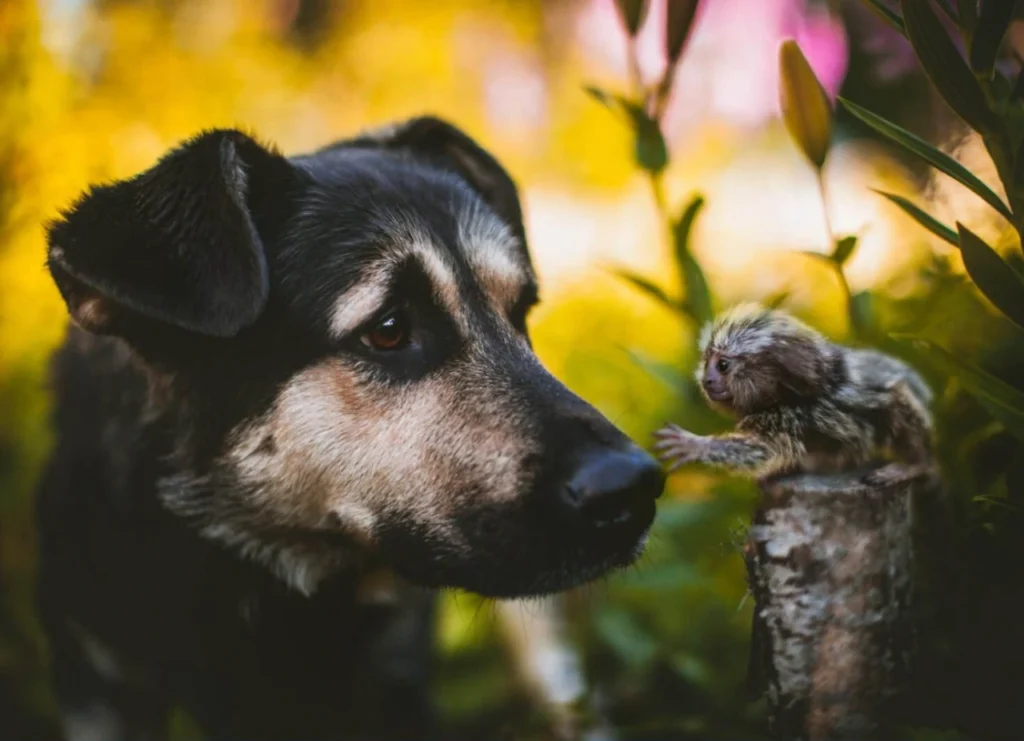
Thanks for finally writing about > How to Care for a Rat for Beginners?
– The Animal Sound < Loved it!